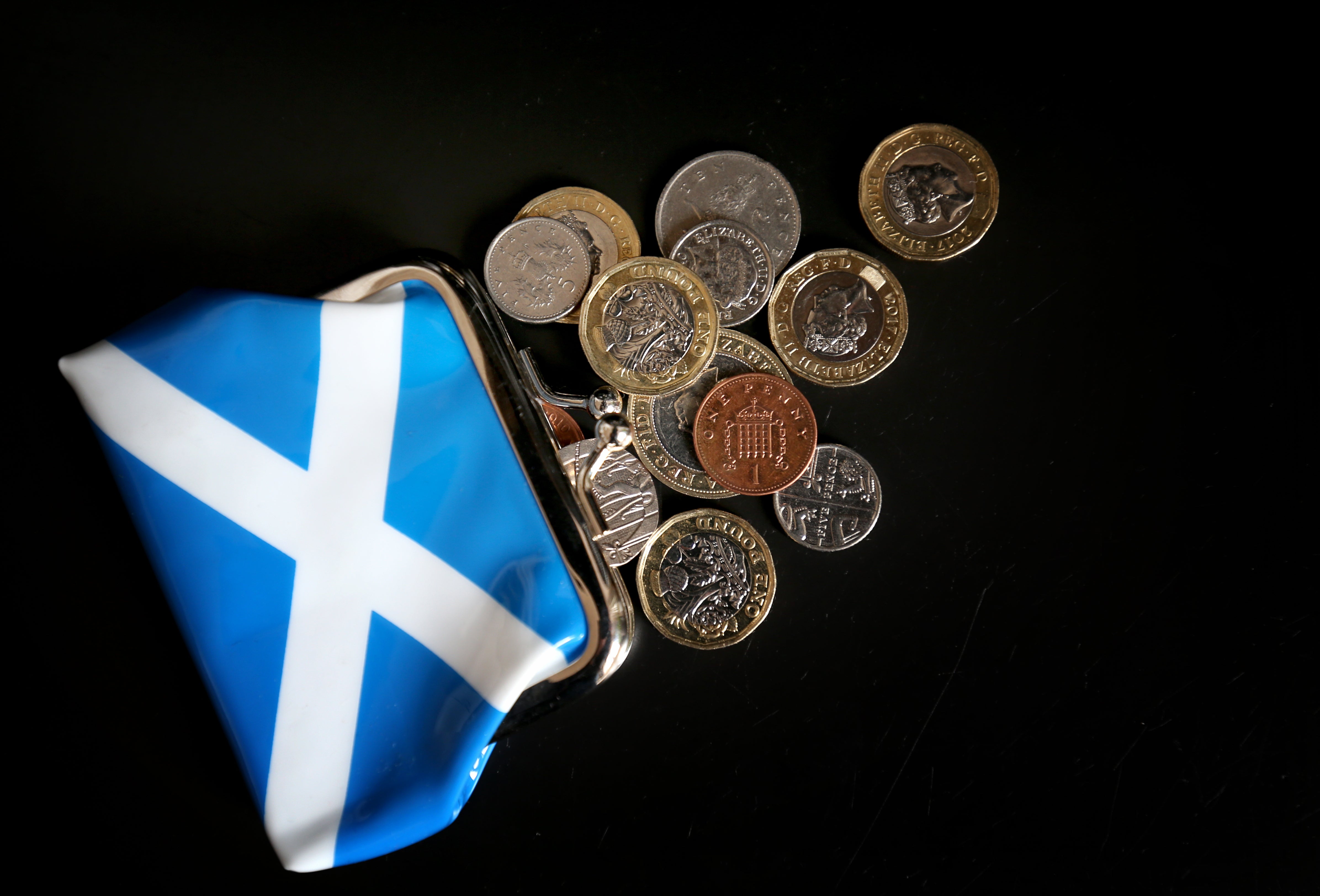No evidence Scotland’s higher tax rates have increased evasion – Auditor General
The UK’s Auditor General said there has been no significant impact on Scotland’s income tax revenue due to divergent rates.

Your support helps us to tell the story
From reproductive rights to climate change to Big Tech, The Independent is on the ground when the story is developing. Whether it's investigating the financials of Elon Musk's pro-Trump PAC or producing our latest documentary, 'The A Word', which shines a light on the American women fighting for reproductive rights, we know how important it is to parse out the facts from the messaging.
At such a critical moment in US history, we need reporters on the ground. Your donation allows us to keep sending journalists to speak to both sides of the story.
The Independent is trusted by Americans across the entire political spectrum. And unlike many other quality news outlets, we choose not to lock Americans out of our reporting and analysis with paywalls. We believe quality journalism should be available to everyone, paid for by those who can afford it.
Your support makes all the difference.There is no evidence that higher rates of tax in Scotland compared to England has affected how many people pay their taxes north of the border, the UK’s Auditor General has said.
The head of the National Audit Office (NAO), Gareth Davies told a Holyrood Committee that there has not been any significant impact on tax collection caused by Scotland’s higher rates for the top three bands.
Income tax on earnings over £25,296 is set at 21% in Scotland, the higher rate for earnings of £43,663 and above is 41% and the top rate for those on more than £150,000 is 46% – all one percentage point higher than the rest of the UK.
Scotland also has a starter rate of tax – for earnings above the tax-free personal allowance of £12,570 and below £14,668 – that is set at 19%, one percentage point lower than the basic rate of 20% in other UK nations.
- Starter rate: 19% (£12,571 – £14,667)
- Basic rate: 20% (£14,668 - £25,296)
- Intermediate rate: 21% (£25,297 – £43,662)
- Higher rate: 41% (£43,663 – £150,000)
- Top rate: 46% (£150,001+)
The Scotland Act 2016 gave the Scottish Parliament full control over income tax rates and bands, except for the personal allowance, with the government using the powers to introduce a lower threshold at which taxpayers paid the higher rate in 2017, and then adding two new rates in 2018.
Questioned by Scottish Conservative MSP Sharon Dowie whether there was any evidence of behavioural changes because of diverging tax rates, Mr Davies said: “There’s no significant impact on the tax take set out in the outturn of Scotland.”
He added that both the NAO and the Auditor General for Scotland have recommended that HMRC keep the situation “under particularly close attention” because the changes are relatively recent and “evasion behaviour may take some time to emerge”.
Mr Davies also said he was “not aware of any cases” of fraud where people have provided a false address to avoid paying Scottish income tax.
Giving evidence to Holyrood’s Public Audit Committee, Mr Davies revealed that income tax collection in Scotland and the UK was higher than expected and had actually increased during the pandemic.
Both the furlough scheme and the self-employed income scheme heavily protected levels of income through the worst phases of the pandemic
He said: “Covid-19 has had less of an impact on the collection of income tax in the UK as a whole and in Scotland than might have been expected at the start of the pandemic.
“In fact, the outturn is slightly higher than the estimate for 2019-20 and represents an increase on the previous year and the estimate for 2020-21 also represents a further increase.
“I think, in the context of a pandemic, that’s maybe slightly surprising but also very welcome in terms of tax collection.
“This is consistent with what we’ve seen in our audits of HMRC for the UK as a whole, where Covid support schemes have stabilised employment.
“Clearly, with those schemes now having ended, there’ll be a lot of attention at HMRC on the impact on tax payment rates, the level of taxpayer debts to HMRC and the impact of all of that on the amount finally collected.”
Mr Davies continued: “The total tax cut take for the UK has reduced but it’s not income tax, it’s other taxes that have suffered the brunt of that – particularly VAT.
“The biggest single ball in the tax take for the UK is on VAT where a £15 billion reduction is anticipated.
“Reductions also in hydrocarbon duties is another significant amount and some other business taxes.
“But income tax on individuals has held up.
“And I think the answer to why that is, is the Covid support schemes that were put in place.
“Both the furlough scheme and the self-employed income scheme heavily protected levels of income through the worst phases of the pandemic and has therefore resulted in higher levels of income tax than might have been expected.”